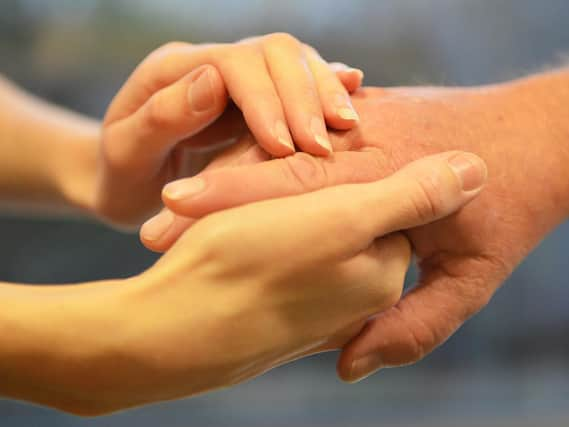Financial exclusion during pandemic means people are locked into "vicious cycle of money and mental health issues," says charity


Some three million people have been “excluded” from government financial support since the start of the pandemic according to Excluded UK, including the newly employed, the newly self-employed, and freelancers.
Government schemes including furlough have strict criteria on who is eligible, and while support schemes for self-employed people have been extended, claims for grants are not able to be backdated.
Advertisement
Hide AdAdvertisement
Hide AdOn Saturday, the Yorkshire Post reported that some people have said financial exclusion has meant they have lost their homes and struggled to afford food.
Excluded UK has also said they’re aware of suicides connected to financial stresses of the pandemic, and has provided members of the grassroots campaign with a free counselling session.
The number of people who have reported feeling depressed in the pandemic has almost doubled, according to the Office for National Statistics.
Sarah Murphy, associate director for information, advice and training at Rethink Mental Illness has warned of the mental health implications of losing financial certainty.
Advertisement
Hide AdAdvertisement
Hide AdShe said: “There’s this vicious cycle of mental health and money issues.
“We’re hearing from people who have been getting along in life up until this point very well both financially and mental health wise. Then this comes along, and they’ve had this income shock that inevitably sends people into a spiral.
“If you haven’t had to try and navigate a benefit system before, then it is a nightmare, so difficult.”
The charity is particularly concerned about the impact financial pressures have had on people who are self-employed or owners of small businesses.
Advertisement
Hide AdAdvertisement
Hide AdMs Murphy said: “The success of the business is often tied up with self worth. So things aren’t going to plan, then they question themselves. And that’s where the shame and isolation and loneliness is beginning.
There are also concerns that debt collectors and banks will start putting pressure on self-employed people and businesses to pay back debts accrued over the pandemic, leading to increased stress.
Ms Murphy said: “I think in terms of support terms of priority payments, a lot of lenders have brought in a lot of forbearance and that is going to end. And we would really caution common sense really when it comes to those payments that need to be recovered.
“Having been a debt advisor during previous recessions where repossession rates on people’s properties were high and negative equity was high, you know there’s no winners.
Advertisement
Hide AdAdvertisement
Hide Ad“Financial issues do drive people to just absolute despair and feeling completely hopeless.
“There is always an option for dealing with debt, and to not feel that joint shame that people feel both in terms of struggling with their mental health but also the money issue. We need to let people know that they’re not alone.”
The charity has produced a toolkit to be given out by GPs about money and mental health.
Last week, the government announced plans for a £500m package to aid in mental health recovery following the pandemic, including funding for improved access to therapy for 1.6m people and suicide prevention initiatives.